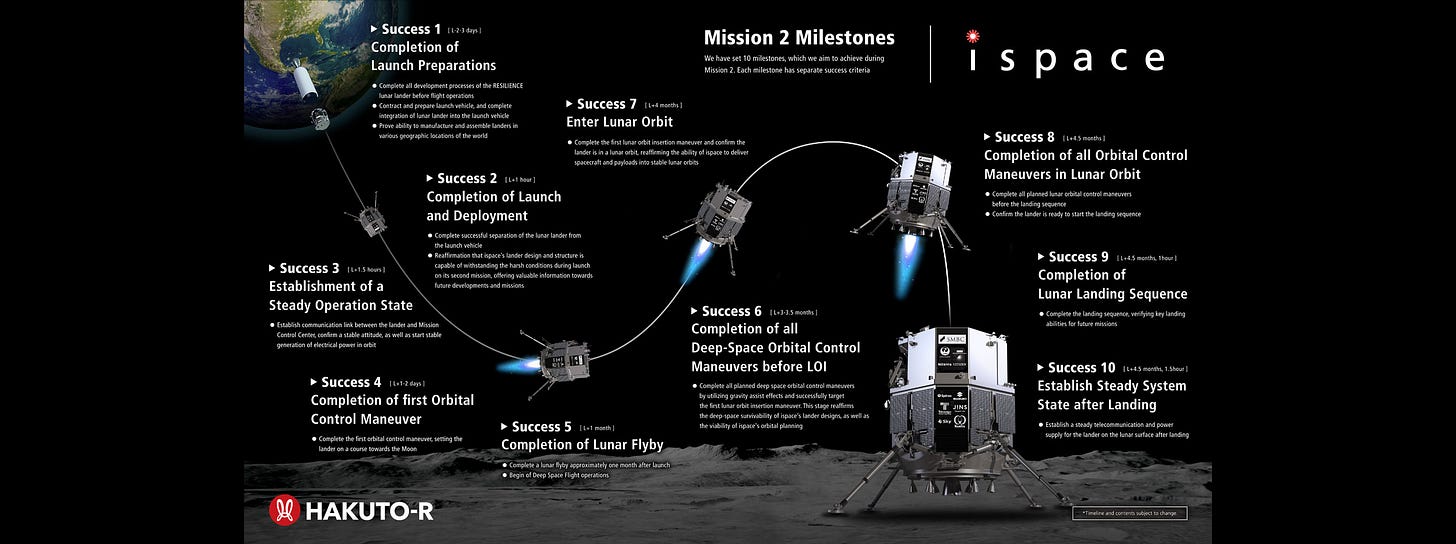Hey there!
If you are of a certain age, you might look at the title of this week’s podcast and think that this line is a very clunky take on one of those walked-into-a-bar jokes. Listen to this episode and you will be rewarded with one or two humorous moments, but what’s at stake is no laughing matter.
In the legal documents filed in Germany and in Lichtenstein that I have read, it is undeniable that the People’s Republic of China, through commercial proxies, has been leveraging a variety of western legal systems in a hostile attempt to forcibly secure 100% control of the privately-held German satellite broadband communications company KLEO Connect, and Lichtenstein’s International Telecommunications Union-allocated priority filing rights to Ka- and Ku-band radio spectrum.
This type of hostile action is called lawfare, and is part of a group of hostile or aggressive actions called gray warfare or gray-zone warfare, because they fall beneath the level of an act of war.
What the Chinese likely did not factor into their legal and financial battle-plan was a “Black Swan”: the will and deep pockets of an Irishman, seeking the same technological intellectual property rights and priority spectrum filing rights, and spoiling for a fight.
“ You know, there is something to that fighting-Irish thing. And I do love a fight. And I mean there is nothing better to fight than a communist. I mean it's what I was born for. It's what I was brought up for. And I mean here is a chance to fight the Communist Party of China.” - Declan Ganley, SEO, Rivada Networks
That Irishman is Declan Ganley, Chairman and CEO of Rivada Networks, Rivada Space Network’s privately-held parent company. Rivada Space Networks is headquartered in Germany, but has representatives in United States, Ireland, and Lichtenstein, and probably more locations.
The legal fight Ganley and his company bought into currently tallies more than 150 lawsuits and countersuits filed in at least four different countries, involving four shareholders, with two Chinese companies on one side of the table, and two western companies on the other, of which Rivada is one. Ganley claims Rivada has spent almost $50 million on legal fees.
What’s been on the line
Control of KLEO Connect, a German satellite manufacturer, the founders of which had aspired to make the company a European-based satellite broadband communications network akin to SpaceX’s Starlink
Control over KLEO Connect’s intellectual property, specifically for Ka- and Ku- band broadband satellite communications
Some of the technology inside China’s highly-touted Thousand Sails satellite mega constellation
Lichtenstein’s Ka- and Ku-band high priority spectrum rights - in 2023 Lichtenstein awarded these licenses to Rivada
Corporate legal norms, customs, and law
Shareholder rights
Face or bragging rights, domestic and international prestige

The Chinese parties to the lawsuits include one or both the Shanghai Spacecom Satellite Technology (SSST), owner and operator of the “Thousand Sails” satellite broadband megaconstellation, which receives its financial backing from an odd grouping of various PRC state organizations and Chinese government-backed venture funds; and CED, a Chinese-owned, Lichtenstein-registered company known only by the acronym.
EightyLEO, a German satellite communications company, officially established KLEO as a business entity in 2017. Soon thereafter KLEO inked a contract with Lichtenstein’s Trion Space, which Lichtenstein granted a license to that nation’s priority spectrum filing. Then, with a solid business plan and valuable spectrum rights in hand, the KLEO founders shopped for investors and found SSST.
It started small, just a 10 percent stake for SSST. Soon, however, the entanglement became a Xiangliu, a malicious nine-headed snake monster, capable of bringing floods and destruction.
“Like more conventional forms of warfare, legal warfare is conducted under a unified command organization. It will include the use of the law in implementing offensive actions, defensive actions, counterattacking actions, and other forms of combat. Legal warfare includes such operations as legal deterrence (falu weishe; 法律威慑) and the imposition of sanctions (zhicai;制裁).” Dean Cheng, a sought after China-U.S. relations expert, and non-resident fellow at both the Potomac Institute for Policy Studies and the George Washington University Space Policy Institute.
Rivada bought into legal battle when it acquired a significant, but minority stake in KLEO, sometime after 2021. Rivada also acquired a controlling stake in Trion Space in 2022. What had been just an ugly legal battle became a war with many fronts established in many courtrooms.
Two recent legal developments coming out of German courts have tipped the scales of justice to favor KLEO’s original German founders and Ganley’s Rivada Space Networks. What’s more Liechtenstein’s spectrum regulator-administrator re-awarded those priority spectrum filing licenses to Rivada in 2022.
What makes holding a high-priority filing or filings to radio spectrum special is the governing power it confers on the holder. Using radio spectrum is like using a public park with multiple baseball diamonds for softball games. The first set of teams to file a request, gets first dibs on which field they use for their contest. When they’re done with their game they have to surrender it to the next team, but not before the last out, which can push subsequent game schedules back.
The International Telecommunications Union or ITU, manages spectrum allocation to prevent satellite signal interference through a first-to-file priority system. Because China started aspiring to operate LEO constellations later than the West, it filed for spectrum allocation later as well. It was late to the game.
That means the PRC holds lower priority ITU filings, and therefore less of a legal right to affect how and when others use that same spectrum. It also means that China is legally obligated to ensure its satellites and the signals don't interfere with higher-priority filing holders.

This organized and managed cooperation is meant to foster coexistence, and allow all to play ball. An uncooperative operator or team can force disputes or data transmission shutdowns. Looking at how China has approached other “commons”, such as the South China Sea, there is a geo-strategic dimension to ITU filings.
What’s more, the PRC uses Ka-band spectrum for military applications, as reported in the Eurasian Times, a somewhat China-friendly publication.
“Flight control for Chinese hypersonic weapons is primarily carried out in the military’s high-frequency Ka-band. Its signals have a stronger beam that can penetrate the plasma barrier. Bin’s team also discovered that a pointed tip at the front of the weapon could thin the plasma sheath and enhance communication.” - Sakshi Tiwari, Eurasian Times, September 2, 2022
I wonder how important that spectrum would be for the United States and the Golden Dome project. Hmm.
What’s in this episode
This week’s episode details what happened when the CEO of a European-US space company bought into a shareholder fight involving two Chinese government-backed entities, that are deeply involved with the Thousand Sails mega-constellation - China’s answer to Starlink. This is a deep dive into lawfare in the space domain, a growing costly concern for the U.S. and its Allies.
Who’s in this episode
Declan Ganley - CEO Rivada Networks and Rivada Space Networks
Dean Cheng - Non-resident Fellow at both the Potomac Institute for Policy Studies and the George Washington University Space Policy Institute
Reading
“Fate of private Japanese moon lander unclear after ispace landing attempt“- Mike Wall, Space.com, June 5, 2025
“Jared Isaacman: What went wrong at NASA | The All-In Interview” - All-In Podcast, June 4, 2025
“Jared Isaacman speaks out, and it’s clear that NASA lost a visionary leader” - Eric Berger, Ars Technica, June 4, 2025
“Are We Ready for Death in Space?” - Peter Cummings, Scientific American, June 4, 2025
Have a great Friday!
As Astra
Laura














